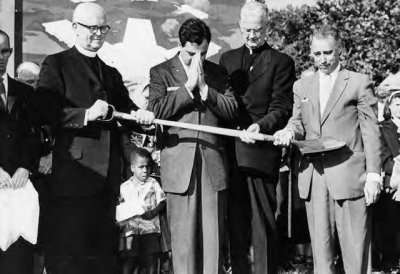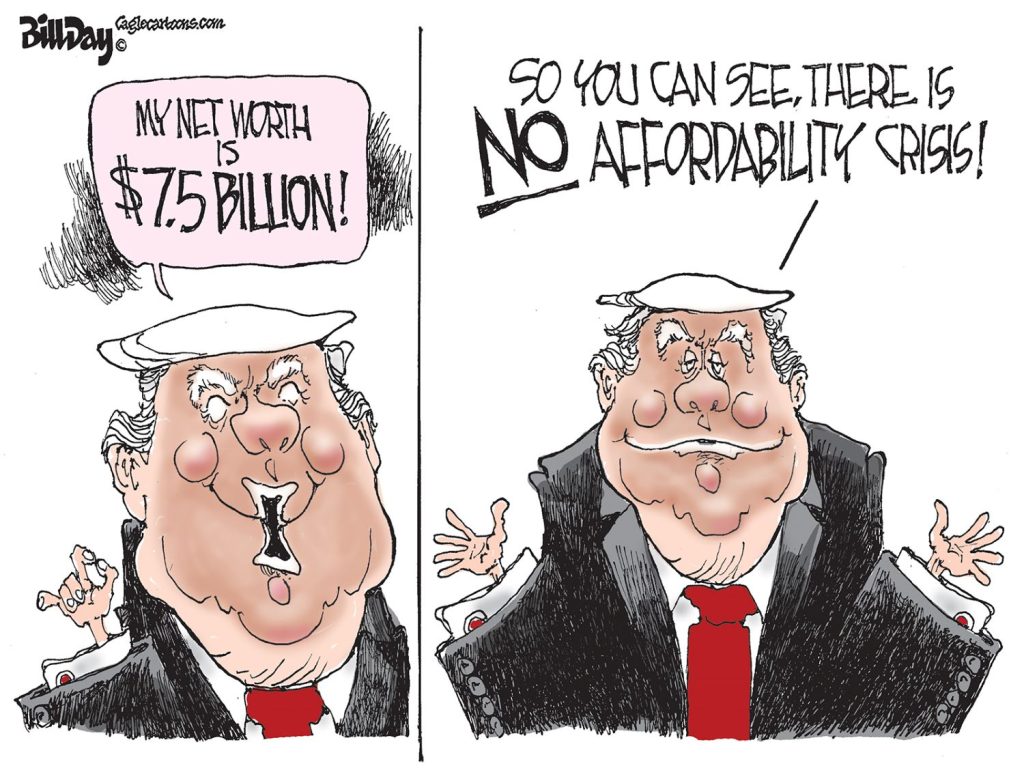When it comes to the Tourism Development Zone, it seems that the Shelby County Board of Commissioners is on the verge of gagging on a gnat while swallowing a camel.
But when you mix in the opportunity to make political hay with some anti-Memphis rhetoric, it’s just too tempting for some commissioners to pass up.
Some Shelby County commissioners are professing outrage that TDZ projects are paid from with a sales tax rebate that includes a small amount of local option sales taxes. As a result, they are talking about asking Tennessee’s Tea Party Legislature – who are perceived as always willing to pass a bill that takes a shot at Memphis – to amend the Convention Center and Tourism Development Financing Act of 1998 so that any funds that would otherwise go to public education is removed from the rebate of funds to city government.
That’s the gnat.
The Gnat
After all, the amount of school funding affected in the proposed Fairgrounds TDZ that is generated away from the Fairgrounds itself is no more than about $150,000 a year despite assertions by some commissioners that it amounts to millions.
And contrary to a prevailing myth, the amount for schools is not frozen until the bonds are paid off. Surely, the commissioners understand that all current sales taxes will continue to be paid to the state, city, and schools on the day the TDZ is officially established.
It’s less clear that they understand how the baseline calculations work.
The baseline is the amount of sales taxes being paid on the day the TDZ is established, and what the TDZ will capture is the incremental increase over and above that amount. What many people don’t seem to comprehend is that the baseline is not frozen in time. It’s changed every year.
Because of that, sales taxes for schools will continue to increase even after the TDZ is established. That’s because that baseline is adjusted every year and increased by the percentage of growth for sales taxes countywide.
A Lack of Proportionality
In other words, sales taxes for state government, city government, and schools will continue to grow in the entire zone, including the Fairgrounds itself, by the same percentage that sales taxes are growing for the entire county. Once the baseline is increased each year by the amount of the increase for countywide sales taxes, the TDZ only gets the increment above that amount.
It’s a better deal than almost any other sales tax incentives given by state government. For example, the sales tax rebates given for professionals sports – here, the Grizzlies and the Redbirds – capture all sales taxes.
All of this angst seems inspired by Commissioner Steve Basar, a newcomer who seems to see the issue as a way to give himself some early exposure. His concern appears motivated by the Fairgrounds TDZ, a City of Memphis redevelopment project.
For the record, besides the growing sales taxes for schools every year within the Fairgrounds zone, the project includes a new $3.2 million gymnasium for Fairview School, and the new sports facilities and fields gives Shelby County Schools the opportunity to move its games and tournaments from ragged, inconsistent school facilities to the new sportsplex at the Fairgrounds. Between the debt service for a new gymnasium – about $210,000 a year – and access to the new facilities, it seems to us that Shelby County Schools – the alleged subject of Mr. Basar’s concern – is getting valuable consideration with the new Fairgrounds development.
The Camel
Here’s the camel.
While some Shelby County commissioners are fixated on this modest amount of money in the TDZ, millions are flowing out the front door in the form tax freezes (PILOTs) that are distributed more liberally here than in any other community in the country. According to Shelby County Trustee David Lenoir’s reports, there are now 466 tax freezes in place in our county.
When Shelby County’s taxes are waived with a PILOT, 25% of the amount is backed out for support of schools. There’s only one problem: the amount of the county’s property tax rate for education is 47.5%.
If the commissioners really care about schools, they would hold harmless school funding in the entire amount, which would provide almost $11 million additionally to schools. Over the past four years, it would have freed up $44.2 million in additional money for schools.
While the PILOTs are where the real money is for schools, it’s curious to watch county commissioners worrying about the petty cash account. If they are serious about school funding, they’ll make some reforms closer to home with the program waiving $46.7 million in county taxes.
First Things First
Here’s the thing about PILOTs.
The Shelby County Board of Commissioners can make that change themselves with the simple passage of a resolution. They don’t even have to go to Nashville and ask for the help of the Legislature. They can do it themselves right here at home.
We’ll see if the commissioners are actually willing to prove how serious they are about protecting school funding or whether this TDZ discussion is all show. Sadly, if there’s one thing that you can count on a Republican county commissioners succumbing to, it is the lure of some anti-Memphis rhetoric and second guessing about how city government invests its money to lubricate their political position.
That, more than anything, is what at work with the current talk in county government about the TDZ.





On TDZs, state law does appear to prohibit the diversion of the schools’ portion of the incremental increase in the local sales tax to some degree. However, I have never seen a legal opinion on the meaning of that portion of the law. Is the state Revenue Department or the county trustee’s offioce failing to follow that portion of the law or is the public use facility mentioned in that statement in tha law different from the type public use facility that is being funded here from TDZ funds? A sentence in TCA 7-88-106 says:
\For any facility that elects to qualify as a qualified public use facility under § 7-88-103(7)(A)(ii) or (7)(A)(iii), the portion of the incremental increase in the local sales and use tax revenue that is statutorily designated for local schools may not be apportioned and distributed for such a qualified public use facility.
I thought the county attorney’s office was going to issue an opinion on what this means and how it applies but I have not seen anything reported on whether there has been such an opinion.
The county trustee’s report on local sales tax collections for July, the first month of this fical year, shows $1,664,043.57 bening distributed to the current Memphis TDZ for the past year. The schools’ portion would have been a little more than $800,000 for the year. Does the $1.6 million represent new spending in the county or is much or all of it spending that would have occurred somewhere in the county if the TDZ did not exist? There is no way to really know the answer to that question. The trustee’s July 2011 distribution report shows $969,006,24 being distributed to the Memphis TDZ. I am guessing that the almost $700,000 increase results primarily from an expansion of the downtown TDZ.
I think the state Department of Revenue should be called on to give a thorough explanation of how TDZs operate and how the money is allocated.
We are under the impression that if the law is changed, it would be prospective and would not affect existing TDZ. We are told that the county attorney opined that an amendment to state law would be required to carve out educational funding.
The downtown TDZ and the Fairgrounds TDZ were designed with major components that would bring in new net spending and economic activity.
Since you are looking at the numbers, how much did school funding increase because of the yearly adjustment of the baseline?
Have no idea on the baseline. In some of the bad economic years, the baseline could have gone down so there could have been a drop in base school funding in some of those years. The figures can be tricky. I am still not convinced that the state Revenue Department is necessarily correct in the way it calculates the figures, Anyway, the County Commission has traditionally been a poor funder of schools. I think if someone took a close look at school funding, they would find that schools in Memphis are funded at a lower level this year than they were last year. The figures might even show that schools located in Memphis are funded at a lower level than they would have been even if the old county system had become a special school district. I think it can be argued that the county commission concern about the TDZ revenue might seem a little petty when the commission in this term and the last term has sucessfully manipulated the funding for schools to take away the growth from the property tax rate and other revenue sources that schools traditionally received. With the merger there was an increased tax allocation of $20 million for schools but it still kept schools in Memphis at a lower funding level than they had before the merger. One can also argue that the voters in Memphis who supported the charter surrender were voting for a cut in funding for schools in Memphis. However, I am not sure the voters were ever informed that they were voting to reduce funding for the schools in Memphis.